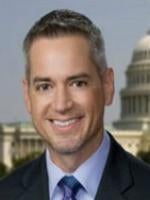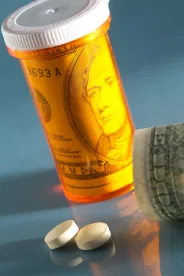A recent decision by the U.S. Court of Appeals for the Second Circuit may significantly curtail enforcement efforts relating to the so-called “off-label” use of drugs approved by the Food and Drug Administration (FDA) for specific uses and/or populations. Finding that the government’s prosecution of promotional statements supporting off-label use of an FDA-approved drug would violate the First Amendment, the court ruled that the Federal Drug and Cosmetic Act (FDCA) must be construed narrowly to avoid unconstitutionally prohibiting such statements.
As we have explained in previous blog posts, when the FDA approves use of a drug, it does so for a specific illness or condition and/or for certain populations. It is not illegal for physicians to prescribe approved drugs for off-label use, and such uses sometimes constitute commonly recommended courses of treatment. Law enforcement efforts (both criminal and civil) have focused on the marketing and promotion of drugs for off-label use by pharmaceutical manufacturers and their representatives.
Civil and criminal enforcement against promotion of off-label use has been extensive in recent years and has resulted in some massive fines for pharmaceutical manufacturers. But in United States v. Caronia, decided December 3, 2012, the government’s enforcement efforts ran smack into the First Amendment’s protection of speech, including commercial speech.
The government prosecuted Alfred Caronia, the representative of a pharmaceutical manufacturer, for conspiracy to introduce a misbranded drug into interstate commerce, a misdemeanor violation of the FDCA, 21 U.S.C. sections 331(a) and 333(a)(1). Under this section of the FDCA, a drug is “misbranded” if, among other things, its labeling fails to bear “adequate directions for use,” 21 U.S.C. section 352(f), and FDA regulations define this term as “directions under which the lay[person] can use a drug safely and for the purposes for which it is intended.” 21 C.F.R. section 201.5.
FDA regulations permit the use of promotional statements as evidence of the intended use for this purpose and, because off-label use is (by definition) neither approved by the FDA nor addressed on the label authorized for the drug by the FDA, the FDA has concluded that “[a]n approved drug that is marketed for an unapproved use . . . is misbranded because the labeling of such drug does not include ‘adequate directions for use.’ ” The prosecution of Caronia was based on his statements to a government cooperator in which he promoted the use of a drug for off-label use by a segment of the population for which the FDA had not approved the drug.
After rejecting the government’s claim on appeal that it had used Caronia’s statements merely as evidence of intent, the appeals court found that the government’s interpretation of the FDCA as criminalizing Caronia’s statements would violate the First Amendment’s protection of free speech. The court began with the expression of principle in the Supreme Court’s decision in Sorrell v. IMS Health, Inc., 131 S.Ct. 2653 (2011) that “[s]peech in aid of pharmaceutical marketing . . . is a form of expression protected by the Free Speech Clause of the First Amendment.”
The court found that the restriction on speech that would result if the FDCA were read as prohibiting Caronia’s statements was content-based because it disfavored the point of view he expressed (supporting off-label use) and was speaker-based because other actors (such as physicians and academics) were free to make similar statements without fear of prosecution. Accordingly, the court found that the restriction on the speech was subject to heightened scrutiny.
The court then found that it was unnecessary to determine what level of heightened scrutiny would apply because the government’s proposed restriction did not satisfy even the least exacting level of heightened review. First, the court found that the restriction on off-label promotional speech did not directly and effectively advance the government’s justifiable interest in drug safety. The court noted that the FDA’s approval process contemplates that there will be off-label use of approved drugs and even includes a safe harbor for manufacturers to make statements about such uses. The court concluded that a prohibition of truthful statements about off-label use paternalistically interfered with the ability of doctors and patients to make well-informed choices about treatment and did not reduce the risk that patients would be exposed to unsafe or ineffective drugs. Second, the court found that a prohibition on such statements – and criminalization of that conduct – was not a narrowly drawn restriction on speech, and noted a number of other approaches that could more narrowly limit such speech in the interest of promoting the FDA’s goals.
The court unequivocally rejected the ability of the government to pursue criminal prosecution of this conduct, writing;
Accordingly, even if speech can be used as evidence of a drug’s intended use, we decline to adopt the government’s construction of the FDCA’s misbranding provisions to prohibit manufacturer promotion alone as it would unconstitutionally restrict free speech. We construe the misbranding provisions of the FDCA as not prohibiting and criminalizing the truthful off-label promotion of FDA-approved prescription drugs. Our conclusion is limited to FDA-approved drugs for which off-label use is not prohibited, and we do not hold, of course, that the FDA cannot regulate the marketing of prescription drugs. We conclude simply that the government cannot prosecute pharmaceutical manufacturers and their representatives under the FDCA for speech promoting the lawful, off-label use of an FDA-approved drug.
The court’s decision clearly leaves the FDA with significant power to regulate and punish pharmaceutical companies in connection with its oversight over the approval and marketing of prescription drugs – for example, in cases in which manufacturers make false statements about off-label use of their products. But, assuming that other courts reach similar conclusions, the ability of the federal government to act against off-label promotion may be significantly diminished.



 />i
/>i
